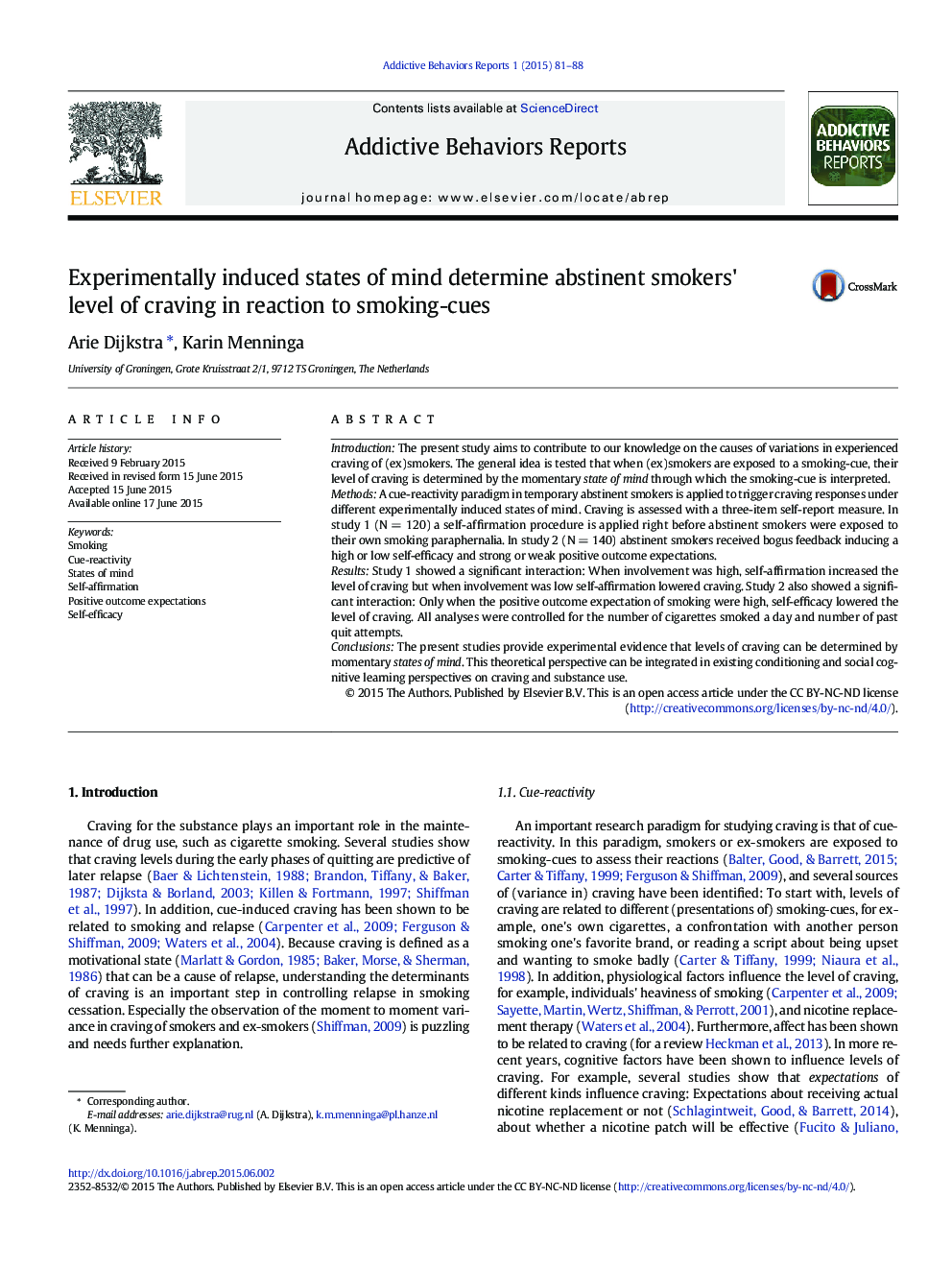| کد مقاله | کد نشریه | سال انتشار | مقاله انگلیسی | نسخه تمام متن |
|---|---|---|---|---|
| 900765 | 1472542 | 2015 | 8 صفحه PDF | دانلود رایگان |
• States of mind are interpretative mental frameworks that determine the level of craving in reaction to smoking-cues.
• States of mind influence craving independent of the physical dependence.
• The concept of state of mind helps to understand the moment to moment fluctuations in craving of smokers and ex-smokers.
IntroductionThe present study aims to contribute to our knowledge on the causes of variations in experienced craving of (ex)smokers. The general idea is tested that when (ex)smokers are exposed to a smoking-cue, their level of craving is determined by the momentary state of mind through which the smoking-cue is interpreted.MethodsA cue-reactivity paradigm in temporary abstinent smokers is applied to trigger craving responses under different experimentally induced states of mind. Craving is assessed with a three-item self-report measure. In study 1 (N = 120) a self-affirmation procedure is applied right before abstinent smokers were exposed to their own smoking paraphernalia. In study 2 (N = 140) abstinent smokers received bogus feedback inducing a high or low self-efficacy and strong or weak positive outcome expectations.ResultsStudy 1 showed a significant interaction: When involvement was high, self-affirmation increased the level of craving but when involvement was low self-affirmation lowered craving. Study 2 also showed a significant interaction: Only when the positive outcome expectation of smoking were high, self-efficacy lowered the level of craving. All analyses were controlled for the number of cigarettes smoked a day and number of past quit attempts.ConclusionsThe present studies provide experimental evidence that levels of craving can be determined by momentary states of mind. This theoretical perspective can be integrated in existing conditioning and social cognitive learning perspectives on craving and substance use.
Journal: Addictive Behaviors Reports - Volume 1, June 2015, Pages 81–88
